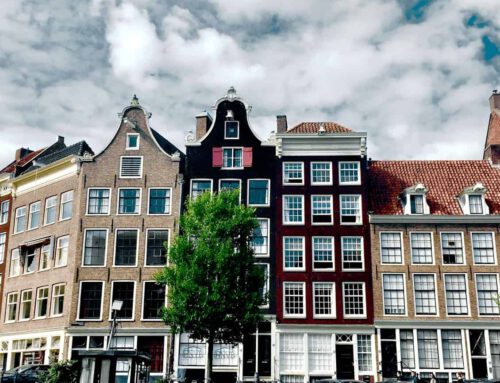Dutch residents are generally required to file an annual personal tax return if they have any taxable items to report or if the Dutch tax office sends a filing request. You may also choose to file your taxes if you expect a refund from withheld payroll taxes or dividend taxes on stocks.
If you live in the Netherlands, you are required to declare all your worldwide income and assets when filing your personal tax return, including any real estate holdings. It’s not just tax residents who must report their property; non-residents with real estate in the Netherlands are also required to make a declaration.
Dutch tax residents and their real estate
As a tax resident of the Netherlands, there are a few important considerations when it comes to reporting your real estate:
Box 1: main residence
If you own a property that serves as your main residence, it is categorized under Box 1. If the property is financed through a mortgage, you may be eligible for a mortgage interest deduction. This means that any interest paid on the mortgage can be deducted from your taxable income. Additionally, costs related to the purchase of the property, such as notary fees, may also be deductible.
Box 3: secondary properties
Properties that are not your main residence, such as second homes, are typically taxed under Box 3. These are taxed based on the WOZ value (the official property value) minus the mortgage value, if applicable. Real estate held on January 1st of a given year must be declared in that year’s income tax return.
Real estate abroad and double taxation relief
If you’re a tax resident in the Netherlands, you must declare any real estate abroad. However, tax treaties between the Netherlands and other countries generally allocate the taxation rights on real estate to the country where the property is located, not to your country of residence.
While you still need to declare foreign property in your Dutch tax return, you are entitled to relief from double taxation. This means you can receive a tax credit in the Netherlands equal to the amount of tax paid in the foreign country on the property.
Moving to a new home
If you buy a new house before selling your old one, you may still benefit from Box 1 tax advantages for both properties. This is possible if the old property is empty and for sale. The tax benefit can be extended for up to three years, including the year of relocation. The same rule applies if the new property is empty and available for your use, for example, during renovations.
Non-residents and real estate in the Netherlands
If you are a non-resident who owns property in the Netherlands, you will generally be liable for Dutch tax. Under most tax treaties, real estate in the Netherlands is taxed in the country itself. As a non-resident, the property is typically subject to Box 3 taxation based on the WOZ value, less any applicable mortgage debt.
What happens if you leave the Netherlands?
If you leave the Netherlands for an extended period, your Dutch home may no longer qualify as your main residence and will be removed from Box 1 taxation. However, you can still choose to keep the property in Box 1 under certain conditions. The key factors are whether the property is for sale, rented out, or kept available for your use:
- Rented out: if you rent the property, it will fall under Box 3 taxation based on the WOZ value, less any mortgage.
- For sale: if you put your property up for sale when leaving the Netherlands, you can keep it in Box 1 for up to three years, including the year you relocate. You will still be eligible for the mortgage interest deduction. If the income in the relevant year is insufficient to offset the deduction, it can be carried forward for up to nine years.
Temporary emigration and keeping property in the Netherlands
If you emigrate temporarily, for example, to work in another country, you may still wish to retain your property in the Netherlands for when you return. In such cases, the house may remain in Box 1, allowing you to continue claiming the mortgage interest deduction, and you won’t be taxed under Box 3.
To qualify for this, the following conditions must be met:
- You must have owned the property for at least one year prior to emigrating, and it must have been your primary residence during that time.
- The property cannot be made available for rent.
- You must not reside in another home purchased abroad during your stay abroad (though renting is allowed).




